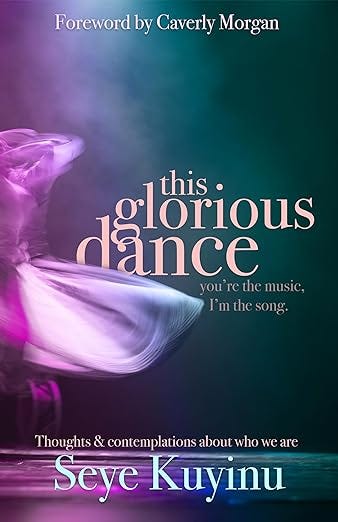I enjoyed this book. It’s an invitation to dive into the intricate nature of cognition, perception and their interplay with the self. From the beginning, one gets a sense of a serious business ahead but it’s delivered with a lightheartedness that spares the reader the mental burdens often accompanying esoteric subjects.
The author’s approach is, “Take a seat, grab a drink, and let’s examine the human condition together.” Despite tackling a subject that such great minds as Descartes, Spinoza, Wittgenstein, Kant, etc., have wrestled with, the author takes a conversational tone as though engaging in a roundtable discussion among friends enjoying an evening of “serious” banters. Far from being another pop philosophical drivel, the language is unpretentious, clear and candid. The prose is interjected with the most fascinating poems. One might assume that the poems are supplements to the prose but they are independent yet integral as parts of the whole. My copy of the book is a colourful mess of highlights because of them.
The author, for whatever reason, says there’s no goal to the book, presenting it as musings and contemplations that he finds profound. Upon reading further, one quickly disagrees. How can a book that challenges our perceptions and forces a rethink claim to be goalless? How can a contemplation that asks us to pause and glimpse the divine through rather mundane observations consider itself meaningless? This is either a deliberate mischief or an attempt to avoid being taken as a guru, or a reverse urging that pokes the reader to arrive at the same conclusion as the author, without the author’s accountability.
By coincidence, I bought the book while still binging on every YouTube interview by Iain McGilchrist and reading his seminal books - The Master and His Emissary & The Matter with Things. Iain is probably the most eminent living intellectual exploring how the workings of the brain shape how we attend to the world - individually, collectively and culturally. He weaves through scientific, historical, philosophical, religious and literary works to make compelling cases for how cognition is central to personal and cultural well-being, and more.
Seye’s book might as well be a pamphlet on the great adventure of understanding reality and being present to appreciate the beautiful mess called life. It also reminds me of John Vervaeke’s Awakening from the Meaning Crisis, the 50-part YouTube series illuminating the nature of reality concerning human cognitive conditioning. Seye’s bidding for the reader to find oneness with everything, our apartness and alignment, independence and relatedness, corporeal and divine nature, is the same goal as John’s “ecology of practice”.
The author teases our presumptions, biases, and delusions, including the mental quizzes laced with humour. The thoughts on “death”, “play”, and “the problem with problems” are particularly charming.
This Glorious Dance tells us who we are, our cognitive flaws and potentials but doesn't tell us how we can be more so we can live maximally or suggest practices to help scale into living fully with nature and our natures. This omission, deliberate or not, doesn’t blunt the brilliance of the exposition.
I will wait for the next dance.
Title: This Glorious Dance: Thoughts & Contemplations About Who We Are
Author: Seye Kuyinu
To Buy: Amazon




